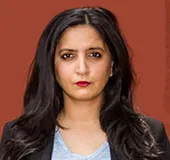
Three years after Saudi Arabia, the United Arab Emirates, Bahrain, and Egypt embargoed trade and travel with Qatar, the blockade was lifted at the Gulf Cooperation Council Summit last week. Kuwait’s painstaking diplomacy, the outgoing American Administration’s desire to damage Qatar’s ties to Iran, and Saudi Crown Prince Mohammed bin Salman’s attempt to emerge as a leader, all of the above brought about the reconciliation. But the leaders have been tight-lipped and the details of the actual bargain struck have not been revealed. The resumption of travel and trade links would certainly ease the financial pressure on Qatar which albeit filthy rich, thanks to huge reserves of natural gas, is also spending big bucks on preparing the desert country to host the next football world cup.
It would, however, much to the delight of the anti-Iran lobby in America, drastically reduce the money Iran was able to make since it offered Qatar a more frequent use of its airspace. But there is a fair amount of scepticism around the deal and many experts said it can at best be seen as a preliminary understanding, not a final resolution to the hostilities. At least the UAE has categorically stated that it has not yet resumed full diplomatic ties. In July 2017, the quartet decided to punish Qatar for getting too close to Iran, supporting the political Islamists of the Muslim Brotherhood and using its Arabic and English language broadcaster Al Jazeera to fan the Arab Spring. They demanded that Doha stop bankrolling the Islamists, downgrade ties with Iran, shut down Al Jazeera news network as well as a Turkish military base. The monarchies feared that the local branches of the Muslim Brotherhood in their countries might challenge their rule. They had witnessed how the political Islamists organized better, hijacked the protests in Egypt, and replaced the toppled dictator Hosni Mubarak with their own candidate Mohamed Morsi. They didn’t want a political Islamist to replace a dictator and preferred an individual of their choice. The UAE and Saudi Arabia subsequently backed General Abdel Fattah el-Sisi’s coup and installed him in Cairo. Then they went about containing the Muslim Brotherhood in the wider region and that included asking Qatar to stop supporting the organisation.
Doha’s relationship with Turkey was another major problem as President Recep Tayyip Erdogan staunchly supported the Muslim Brotherhood. Sheikh Tamim al-Thani's ideological ties with Erdogan have been a matter of concern for the UAE which is taking on Turkey-backed Islamists in the Syrian and the Libyan battlegrounds. For Saudi Arabia, however, Iran is a bigger concern. The kingdom is worried that Iran’s regional expansion and wherewithal to make a nuclear weapon might disturb the balance of power which has thus far been in the favour of Sunni Saudi Arabia—the protector of the two of the holiest mosques in Islam. Trump administration’s Middle East Adviser, and his son-in-law, Jared Kushner, pushed both Riyadh and Doha to bury to hatchet right after Trump lost the elections. The idea was to leave Iran as vulnerable as they could before president-elect Joe Biden took office on 20 January and start the process to re-join the US-Iran nuclear deal. Qatar, at least publicly, has not accepted any of the demands. But some analysts sympathetic to Doha have suggested that the country might be distancing from Iran. They are also busy floating the idea that America might want to use Qatar’s relationship with Iran and make it a mediator as and when Biden expresses interests in renegotiating the nuclear deal. That seems like a long shot especially since Oman and Kuwait have traditionally played mediators in the region.
Thus far it seems that the lifting of the blockade is welcome news for Qatar but it is troubling for Iran which might be worried about losing an ally, even though Sheikh al-Thani has said that Qatar’s relationship with Iran would remain unchanged. And, there are no signs of Al Jazeera shutting down either, although some pro-Saudi analysts have started to appear on the network in the last few days. The biggest bone of contention is Qatar’s relations with the Muslim Brotherhood which continues to vex the quartet, the UAE in particular. Doha has reportedly stopped actively supporting the Islamist rebels in Libya but there is little that indicates that it might break up with the larger group or dilute ties with its other patron—Turkey. Back in 2014, the quartet had first cut off ties with Qatar for the same reason. Then, as now, Doha found a way to render the fold. The trouble is that it didn’t last.
The views expressed above belong to the author(s). ORF research and analyses now available on Telegram! Click here to access our curated content — blogs, longforms and interviews.




 PREV
PREV

